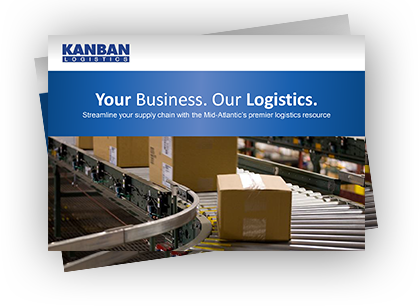If you are a looking for a company to store and/or distribute your food or pharmaceutical products, you will likely encounter warehouse descriptions such as “food grade,” “temperature controlled,” and “climate controlled.” What do they mean?
Whether you know it or not, these terms can be very important to your business and the quality of your products. And, for the business of food warehousing providers, a great deal of effort must be made before these terms can even be used.
Food Warehousing
 Let’s start with “warehouse,” a term that we’re all familiar with. Simply put, a warehouse is a large building in which items are stored. Those items can be anything from mouse traps to airplane engines.
Let’s start with “warehouse,” a term that we’re all familiar with. Simply put, a warehouse is a large building in which items are stored. Those items can be anything from mouse traps to airplane engines.
For some industries, like food products and pharmaceuticals, the warehouse can be just as important as the items themselves. This is because the goods that these industries produce require very specific environmental conditions throughout their entire supply chain lifespan.
Not every warehouse can meet those environmental conditions, so not every warehouse is certified to store food products.
For a warehouse to be a food-grade warehouse, it needs comply with strict regulations and guidelines set forth by the FDA and other agencies. In recent years, the guidelines have become even more stringent through acts such as the Sanitary Food Transportation Act (SFTA; 2005) and Food Safety Modernization Act (FSMA; 2010) which aim to ensure the safety of food in all steps of the supply chain – including storage/warehousing.
Food warehousing guidelines deal predominantly with the conditions of the warehouse. The facility must meet sanitation and cleanliness requirements; be free of pests such as rodents, insects, and birds; adhere to structural guidelines; protect against cross-contamination; and follow requirements related to chemical use in and around the facility.
Additionally, employees must undergo training related to these guidelines and follow sanitation requirements. There are also regulations related to record-keeping and traceability – the ability to track a given item at any stage of the supply chain. Many facilities are radio-frequency (RF)-enabled for this purpose.
Temperature and Climate Control
Then, there are temperature-controlled and climate-controlled warehouses. Many of these warehouses are also food grade, but that is not always the case. In addition to requirements from the FDA and other agencies, many food warehousing companies will become certified by organizations such as AIB International. This voluntary type of certification allows companies to show their customers that they meet rigorous requirements related to temperature and/or climate control for the safe storage of specific food and/or pharmaceutical items.
For many food and drug items, it is very unsafe to be exposed to temperatures outside of a specific range. A temperature-controlled warehouse space requires sophisticated control and monitoring equipment to ensure that the temperature of the facility stays within very specific parameters.
A climate-controlled warehouse differs from a temperature-controlled warehouse in that it regulates and monitors both the temperature and humidity of the space. It too requires state-of-the-art control and monitoring equipment to keep the space within specific environmental parameters.
It is important to note that sometimes only part of a warehouse will be certified for food grade, temperature-controlled or climate-controlled use (e.g., 50,000 square feet out of a 225,000-sq-ft warehouse).
Selecting the Right Warehouse for Your Company
In choosing the right warehouse for your food or pharmaceutical operation, diligence is key. Ask about certification and compliance. Visit the warehouse and examine it inside and out. Does it seem clean and structurally sound throughout?
Ask about the firm’s established systems for ensuring – and monitoring – food safety. Look at the company’s track record, do a quick Google search for any negative reviews/reports, and inquire about its experience in your particular industry.
If you’re not satisfied with the answers that you get, it’s probably time to explore other options.
What Does Kanban Offer?
AIB-certified and registered with the FDA, Kanban offers food-grade and climate-controlled storage space at our fully-RF-enabled warehouses in Plymouth and Rocky Mount, NC. We are one of the very few logistics providers in eastern North Carolina that can provide these services for food and pharmaceutical companies. As the needs of our clients – and the industries of our clients - continue to change and grow, we are more than happy to change and grow right with them in terms of equipment, certifications, and logistics capabilities.
Contact Kanban to learn more about our food warehousing capabilities.
Never Miss a Blog Post
Join our email list to receive new posts in your inbox. We will never spam you. Opt out anytime.
Blog Post Categories
- Outsourcing 3PL (71)
- Warehousing (71)
- North Carolina (51)
- east coast logistics (47)
- manufacturing logistics (26)
- Food Logistics (19)
- Fulfillment (18)
- CSX Carolina Connector (17)
- Miscellaneous (14)
- Free Trade Zone (FTZ) (11)
- Intermodal (11)
- FTZ / Free Trade Zones (10)
- Port of Virginia (10)
- Rail Siding (10)
- Cross Docking (7)
- Kitting (5)
- Aerospace (3)
- Pharmaceutical (2)
- QVC Rework Services (2)
- COO (1)
- Kanban News (1)
- flexible (1)
- operations (1)
- scale (1)
- scott freeman (1)




